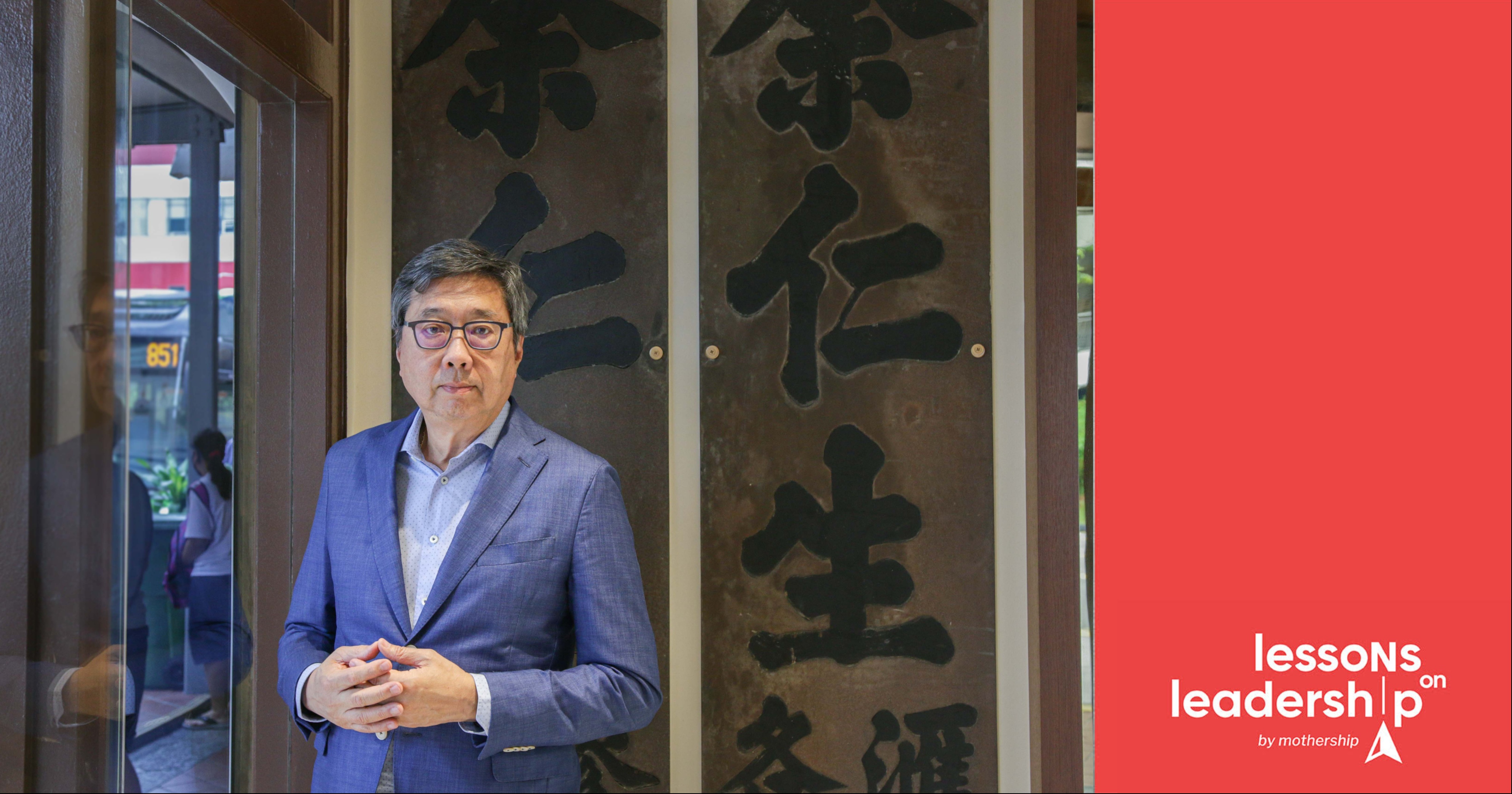One would expect that a person who has lived all of 74 years will have learned a good few things, attained a good few things and be in a comfortable place to share advice and sagely wisdom from their extensive life experience.
Richard Eu (the Second), however, does not understand why I am seeking any of this from him.
We're sitting at a small table straddling a sliding door at the close of lunch hour at P.S. Café at Raffles City for our conversation, which he walked to from a lunch at Raffles Hotel clad in a casual polo T-shirt and worn-in jeans.
"I really don't think I am a success or have attained success," he says to me more than once.
He has a great deal to be proud of, though — since joining Eu Yan Sang in 1989 as general manager, he consolidated the business's fragmented shareholdings, merged the businesses in Singapore, Hong Kong and Malaysia, wrested back majority stake in the consolidated company for the family, and got it listed on and eventually delisted from the Singapore Stock Exchange.
Not to mention his real and lasting achievement: making traditional Chinese medicine (TCM) accessible, even strengthened through scientific research, to a non-traditional Westernised public tired of Big Pharma and Western drugs.
Eu can certainly be credited for turning the average person's impression of TCM from dark, dusty halls lined with unmarked powders and unidentified animal parts sitting in jars to what it is today: carefully harvested, hygienically prepared, dried, boiled, pounded and measured out, portioned into convenient serving amounts for immediate or almost-immediate consumption.
And with Eu Yan Sang cemented effectively as one of the largest TCM brands in Asia, Eu handed the reins over to Eu Yan Sang's current chief executive Aaron Boey in 2017, the first time that the leadership of Eu Yan Sang will be placed in outside hands, stepping back to become the non-executive Chairman.
A law degree that led to investment banking, stockbroking, computer distribution & retail
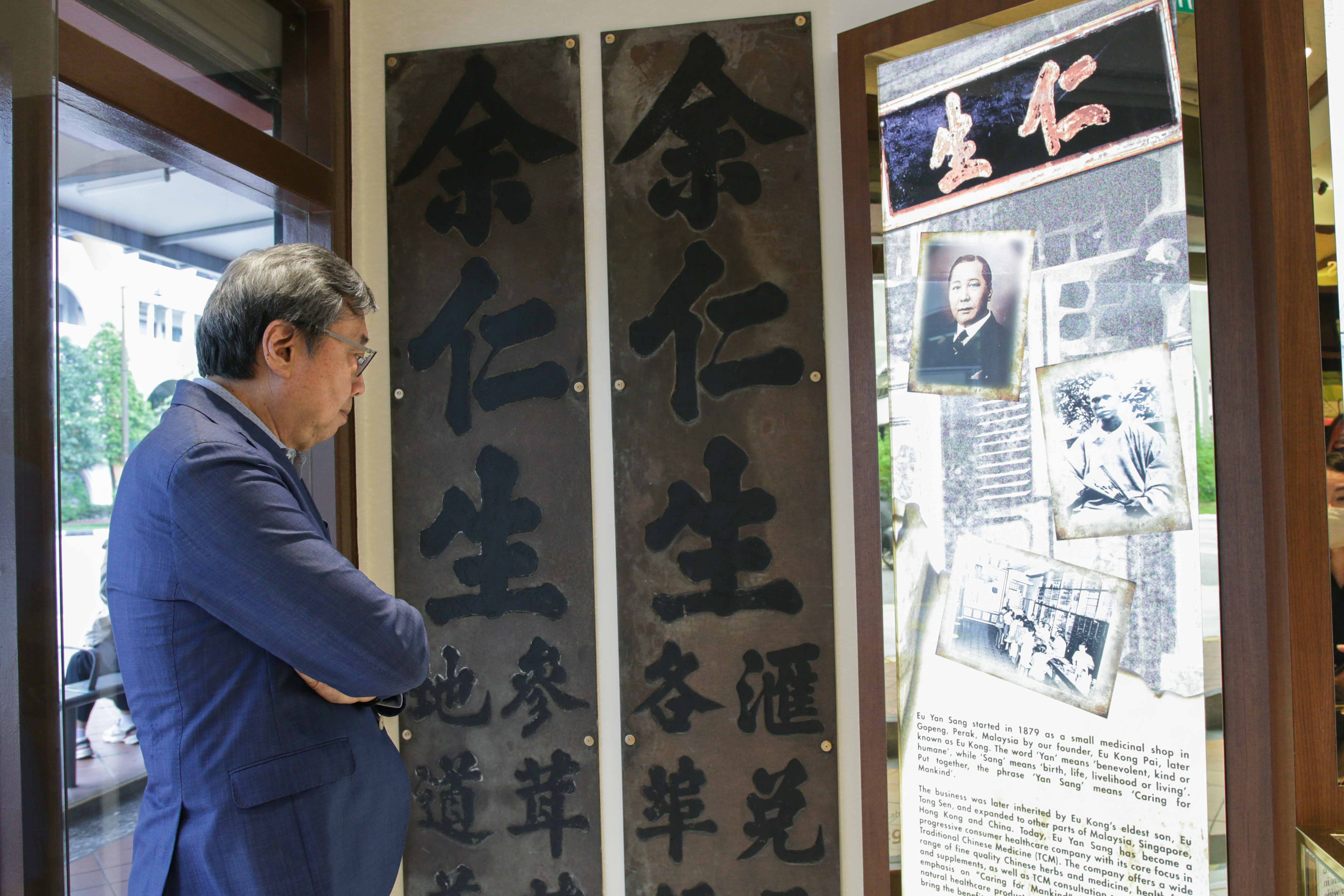 Photo by Lauren Choo
Photo by Lauren Choo
For all that he accomplished, it's fascinating also to learn that the scion grandson of legendary businessman Eu Tong Sen wasn't always planning to join the family business — although the varied jobs he took over the years would end up setting him up perfectly for leadership and the skills he needed in Eu Yan Sang.
His law degree, to begin with, was something he got just for the purpose of having a degree behind his name, "because that was important in those days".
Nor does he think of himself as smart even though he managed to get a place in law school at the University of London.
"I don't think it was brains. I didn't have to study very hard. I just studied to pass; I wasn't looking to be a fantastic court lawyer or whatever. I just wanted to get a degree and be done with it."
Another reason he read law, on his father's advice, was because there was no business degree course offered in the UK at the time.
"It didn't really matter (which discipline I did) but it opened a door lah. If you have a law degree, it's easier to get a job. I went into investment banking. It's either law or accountancy, generally speaking."
To be fair, he wasn't wasting his time while studying either — Eu says he was always interested in business, and his enterprising spirit led him to cart whatever European fashion he could carry back to Singapore to resell, as well as electronics and Seiko watches on his return trips to the UK to sell to his classmates.
In his final year, he invested in a Chinese takeaway food kiosk business with some friends, even working at the kiosks in his spare time for the better part of two years before he returned to Singapore and it collapsed, bringing down his and his partners' investments with it.
"The microwave technology wasn't good (at the time). It affected the quality of the food prepared because it was soggy."
Why investment banking after a law degree? "It's where the money was," he says simply, although at the back of his mind he did recognise that he was looking for opportunities that would help him in doing business in the future.
It was probably this subconscious motivation, therefore, that drove him to his career moves in his early working years — he would only join Eu Yan Sang at the age of 42.
These included helping two of his uncles with their businesses, one of which was the corporate turnaround of a flagging computer distribution company, as well as a consulting stint with Metro, where he learned about retail — this would prove to be key in unlocking Eu Yan Sang's potential.
"I hate to be told I can't do something"
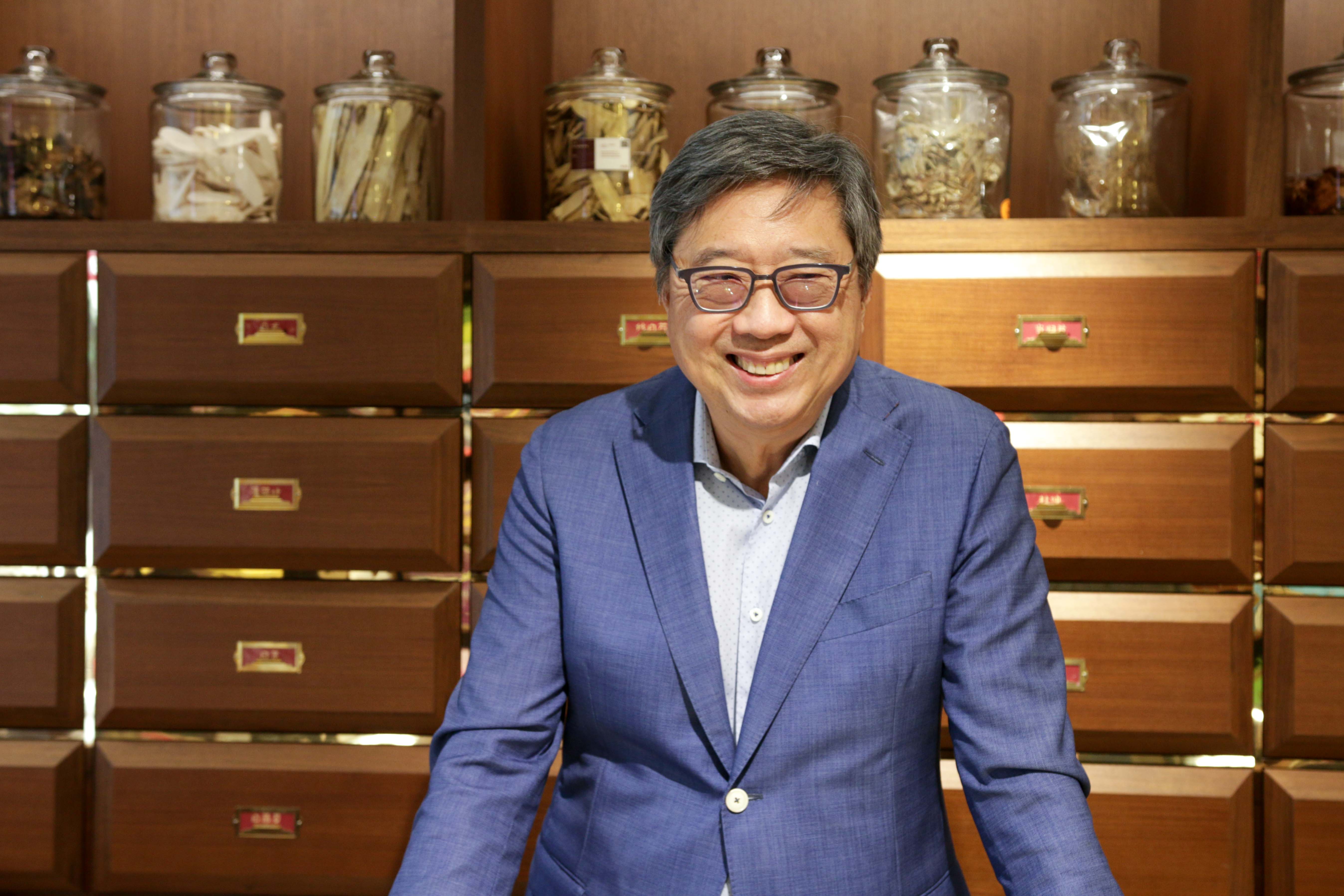 Photo by Lauren Choo
Photo by Lauren Choo
One thing that definitely fuelled Eu's success in innovating the way TCM is produced, prepared, packaged and sold is his conviction to a contrarian approach and manner of thinking.
This came into play with Eu Yan Sang in the late 1980s, at a time of TCM being dismissed as a sunset industry.
"I didn't think it (TCM) was sunset at all. I had a totally contrarian view to everyone else. And so to a large extent you have to believe. You have to have that conviction."
And what was Eu's conviction at the time? That TCM can, and will succeed and thrive, and can be sold to the modern seeker of healing as long as it is packaged for him or her.
"So I think you've got to look. I don't know how you explain this, but you look at things and you question yourself. Why? Why is this business successful? Why are they different? Why is selling a McDonald's hamburger so successful? And other hamburger places are not...Why is that, you know? It's not just the product itself.
I think there's a time and place for everyone... But when you look at corporate life cycles it's always there. So the question for us in Eu Yan Sang is, is it really a total sunset or is there an S-curve, right? Is there a way to bring it out? So what I thought was that because the Westerners were moving against Big Pharma and were going into more natural remedies and things like that.
I thought, you know, the Westerners are doing this. We are copying the West all the time... We have a much deeper knowledge of natural remedies than any Westerners."
And how did he know this or decide that this view he had, that nobody else shared, would prevail? Gut feel, he says, although perhaps decision-making can now be informed by analytics and data too.
"You can also analyse everything till the cows come home but there's nothing in the analytical process that tells you when to act. But I think I may be wrong. Nowadays, with big data, there's a lot of insights that you might be able to glean from consumer research, maybe. Back then it wasn't so straightforward, so you just had to use a lot of gut feel. I mean you can use your big data, your analytics to help reinforce your feelings about something. Or it might tell you not to do something."
Learning to let go, and dealing with emotions
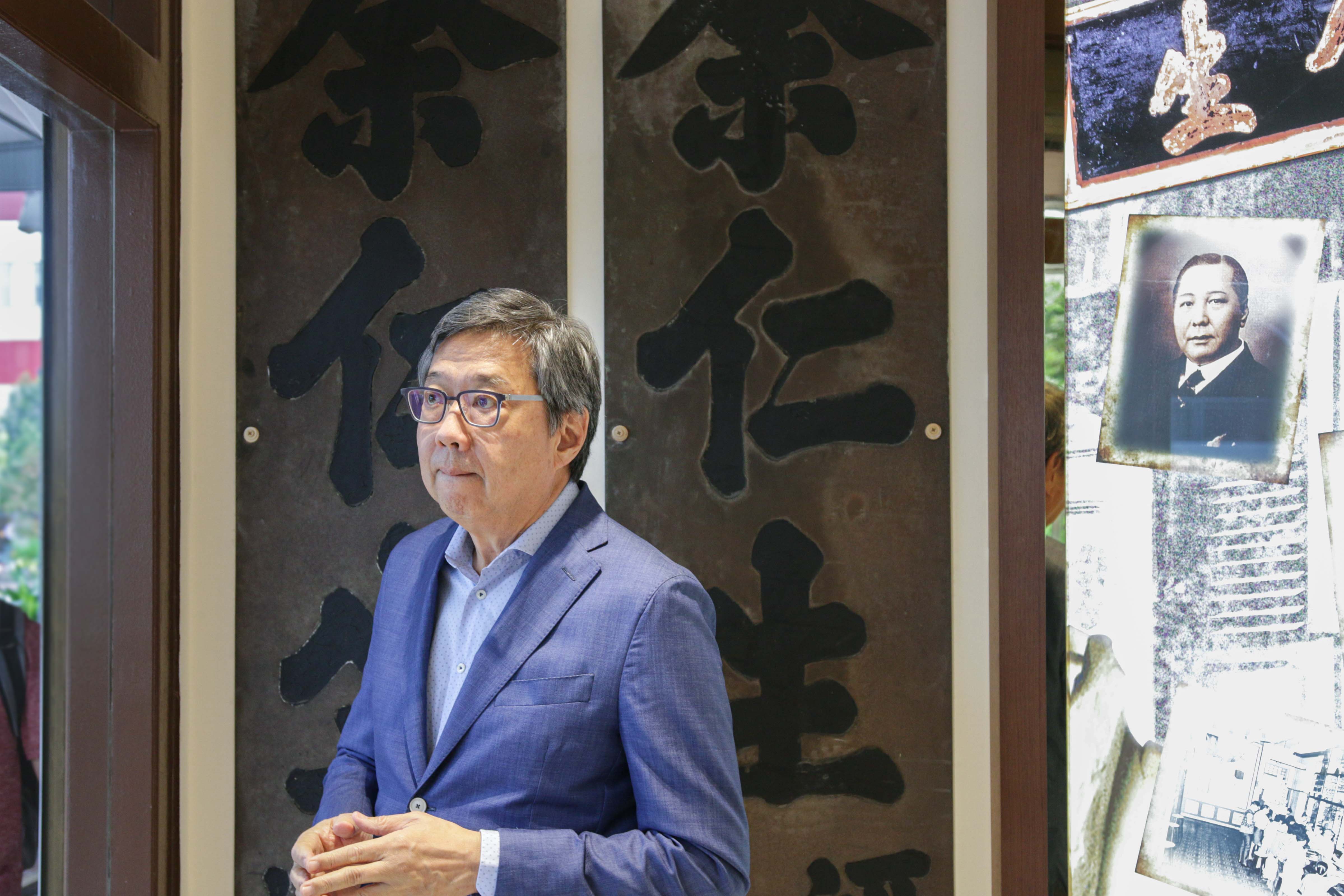 Photo by Lauren Choo
Photo by Lauren Choo
Now that Eu has stepped back from active leadership of Eu Yan Sang — this will be his fourth year in retirement from the CEO role — I must admit he does sound reflective and wistful in our conversation.
He admits candidly that he continues to work through his own emotions that come from the process of transitioning the company he built up from family- to professionally-managed.
"So for example, how your staff are being treated — back in the day when you were a family-run and family-owned and run business, you tend to take a more paternalistic approach. When you're professionally run, it's a bit more objective and not so personal.
In a family-type situation, you can afford to be more forgiving. But you also are held to different standards of behaviour. So, for example, the behaviour of people towards each other. In both family and non-family situations, how a manager behaves towards co-workers reflects on that person’s value system. However I believe a family member will be held to higher standards of behaviour and should behave accordingly. Hopefully, this behaviour sets the corporate culture as well when family-owned companies transition into professional management."
He acknowledges, however, that the difference lies in where one comes from in managing the business. Also, as one of numerous shareholders, Eu believes that he does need to step back and let go, particularly in areas where not everyone is in agreement with him about how things should be done.
"I take the attitude that you've got to be able to disengage, right? So we've got to determine that if if something makes you unhappy, what is it? If it is some sort of attachment that you have which is not rational, it's purely emotional. Always question whether it's right to feel this emotion.
This is from the point that you are supposed to let it go, you let other people manage it and so on. So at that point, how much detachment should there be? 100 per cent? Yeah, if it's 100 per cent, why am I feeling emotional? I should not. Then I'm wrong."
The most important thing about managing a business? How you treat your people
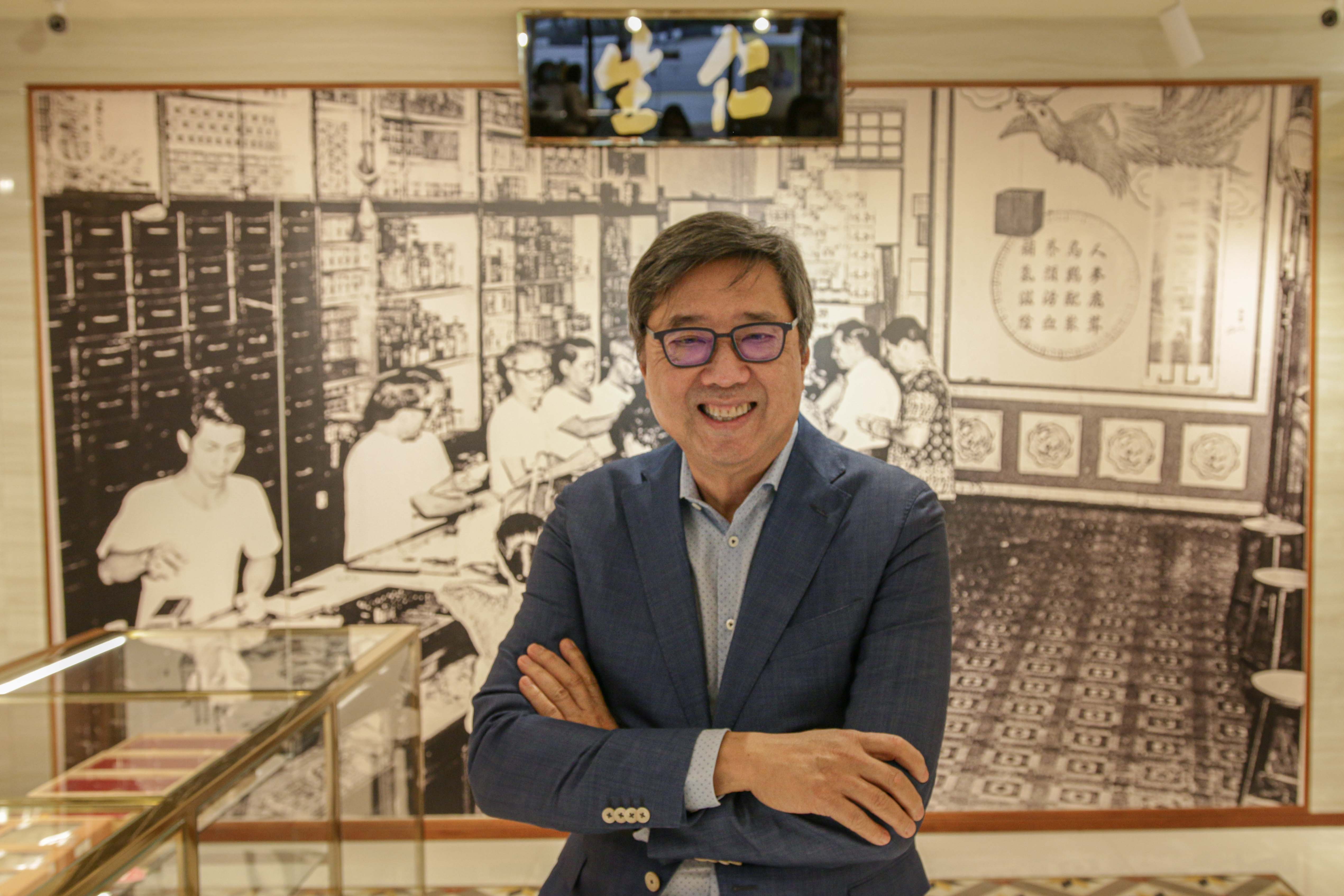 Photo by Lauren Choo
Photo by Lauren Choo
It's also quite remarkable and refreshing to me, the number of times Eu says he is wrong or knows little about things — a reflection of the humility and the realistic perspective he has toward the positions he holds on matters.
"I know nothing! I think I'm good at organising things together, people, whatever it is, and I always assumed I know the least, so we try and work as a team. And you have to employ people who are smarter than you. If you don't do that, you can't progress."
This humility, in my view at least, extends also to his management style. He remarks that his preference is to work in smaller-sized companies generally, and having been used to running Eu Yan Sang as a family business, he feels he was perhaps more forgiving than people in a larger, more professionally-run outfit might be used to.
"We always try to find reason for people to stay in the company beyond just how much we pay them. How you treat your people matters because I think if you have a good working environment, people will not leave so easily even if they are offered more pay elsewhere. Because I don't believe that people work only for pay. If that's all they're working for, then let them go."
Eu says that in the years he was at the helm, he stood guided by Eu Yan Sang's values of trust and integrity in managing his staff.
"You've got to be straight with your staff, basically; that's how I did it. It's not easy to do sometimes, it's very difficult, but I think you have to treat everybody with dignity and respect, you know, especially your staff. Then if there's mutual respect, it's easier to have even the difficult conversations, you know, and that's how I did it."
On top of these: doing the right thing by people.
"I think that's very important. I think one also needs a sense of what's right and wrong — I think it's important, to instil in children as well. A strong moral compass."
And what do years of experience give? Speed in decision-making
Another big takeaway from my conversation with Eu is that even though he doesn't feel like he is a success or has attained it, one of his motivators is to find ways to help people — hence, perhaps, his decision to share his lessons and values with me as well.
"I don't think I'm that successful, and I just try to lead my life the way I think it should be led. I think that's really it, you know... I try to think about other issues, as to how to help people as well. So it's hard for me to say no to people, generally, especially if they need help. And that's one of my failures, maybe. But it's quite fulfilling."
And while he confesses he struggles to grasp the next big things the world will have to grapple with, such as cryptocurrencies and blockchain, one thing he does feel older people like him have an advantage in, though, is the ability to make decisions more speedily.
"I think it's something you learn over time, that you try to make decisions as quickly as possible. So it's not to hold back. And I find that with experience, you can make decisions faster. You get it, you comprehend the problem, you grasp the problem. And you can decide quicker. That's the benefit of experience. And that's the benefit of actually learning from experience. Mistakes, too, both good and bad.
This is where the old guys have a bit of advantage over young guys, if the old guys have been able to learn from it."
Changing the landscape of an industry, and not feeling a thing
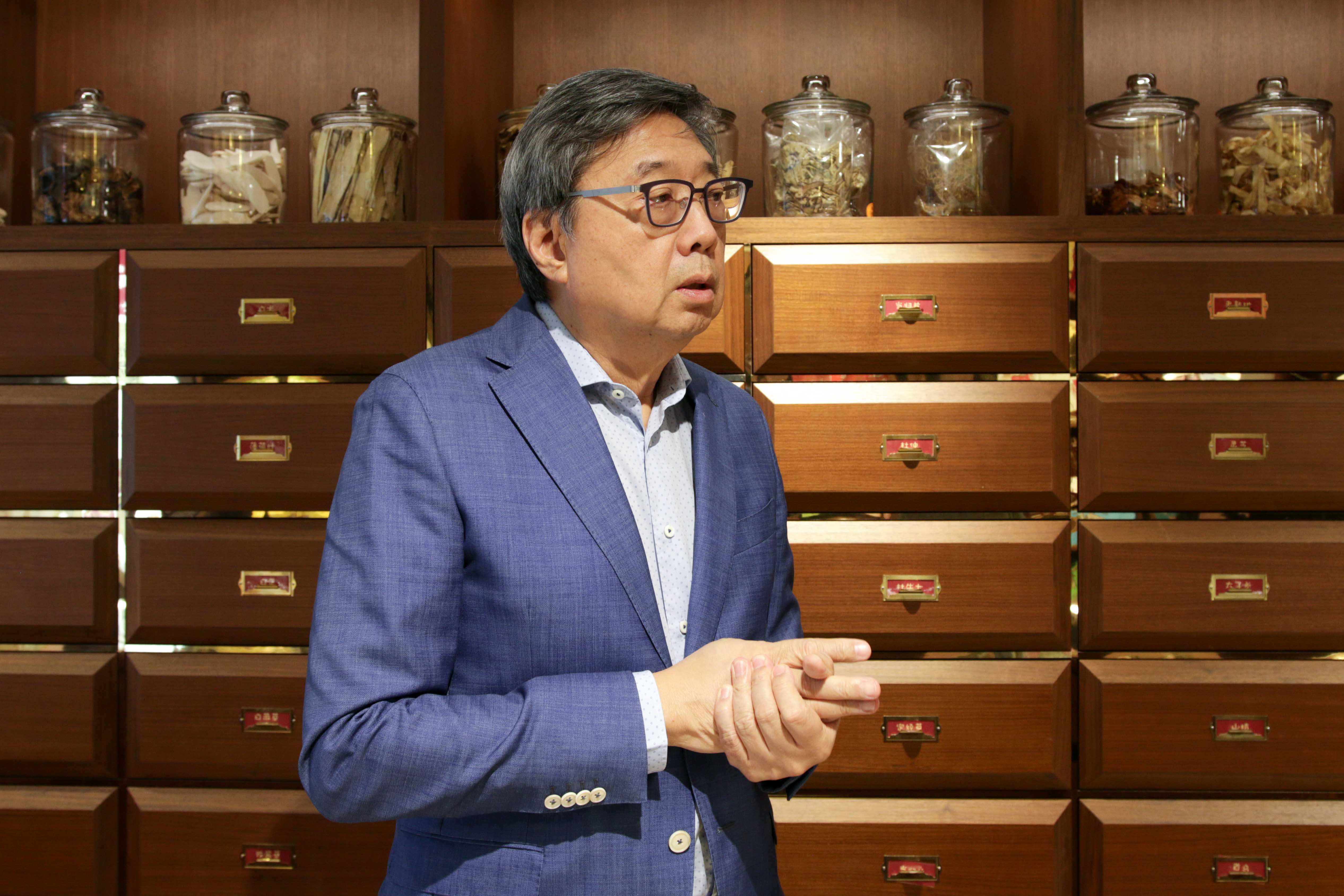 Photo by Lauren Choo
Photo by Lauren Choo
Finally, I had to ask — how does it feel, looking back on all that you've achieved?
Long pause. Eu then says he hopes that the company, at least, will be recognised for changing the landscape of the TCM industry.
"When you're in it, you don't feel a thing actually. I don't feel it, and I'm astounded that people might feel that.
It's very hard for me, I can't be objective about that. So yeah, I hear what people say; I take it with a pinch of salt. Don't ever believe everything people say about you. But I do feel that we have made a change in our industry, so I think it's good."
Watch the Beyond The Glass Door video interview with Aaron Boey, Group CEO and Executive director at Eu Yan Sang:
Lessons on Leadership is a Mothership series about the inspiring stories of Singapore’s business leaders and entrepreneurs, as well as the lessons and values we can learn from their lived experiences.
Stay tuned for our next interview with Lyn Lee, founder of Awfully Chocolate, out later this month.
Top photo by Lauren Choo
If you like what you read, follow us on Facebook, Instagram, Twitter and Telegram to get the latest updates.
